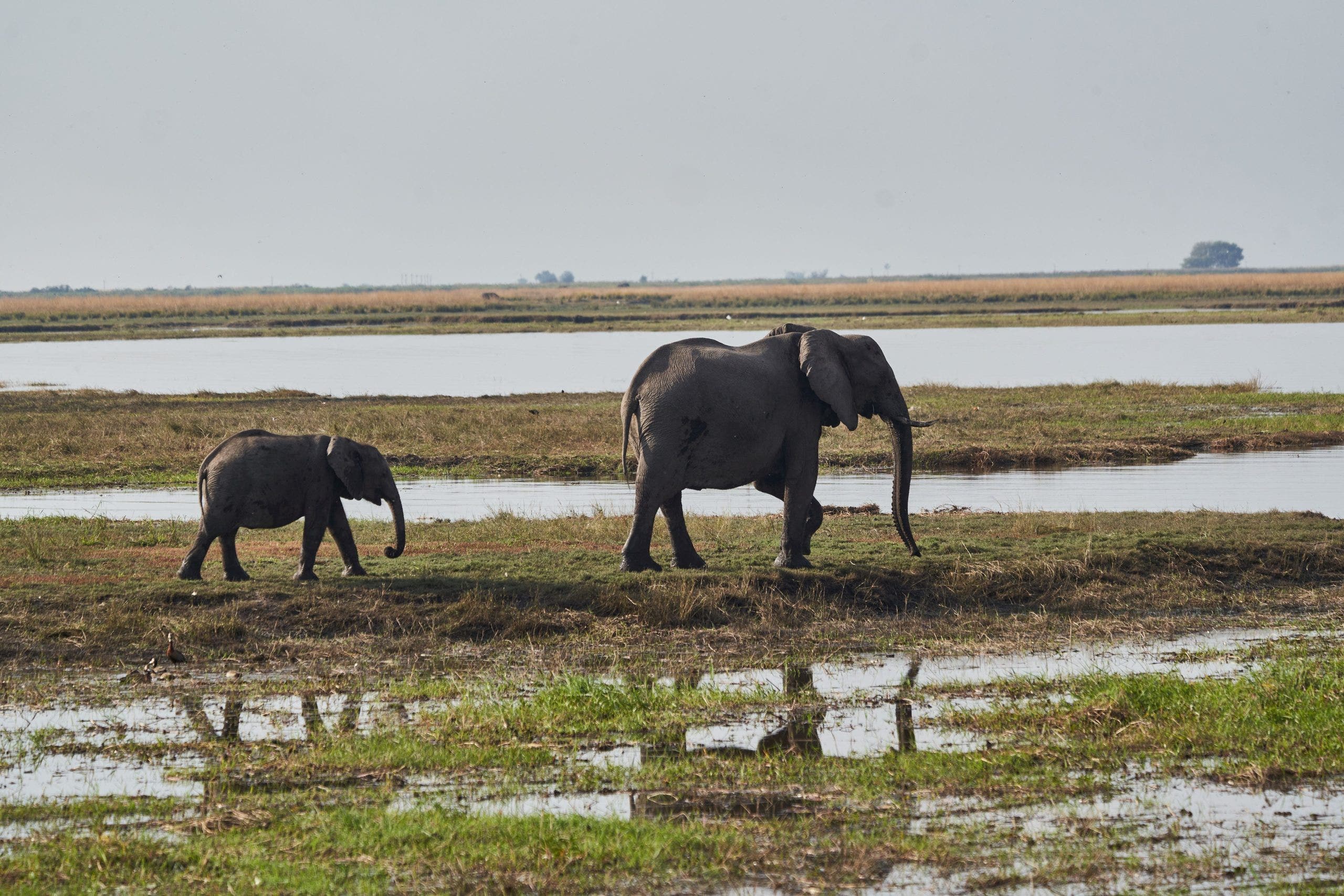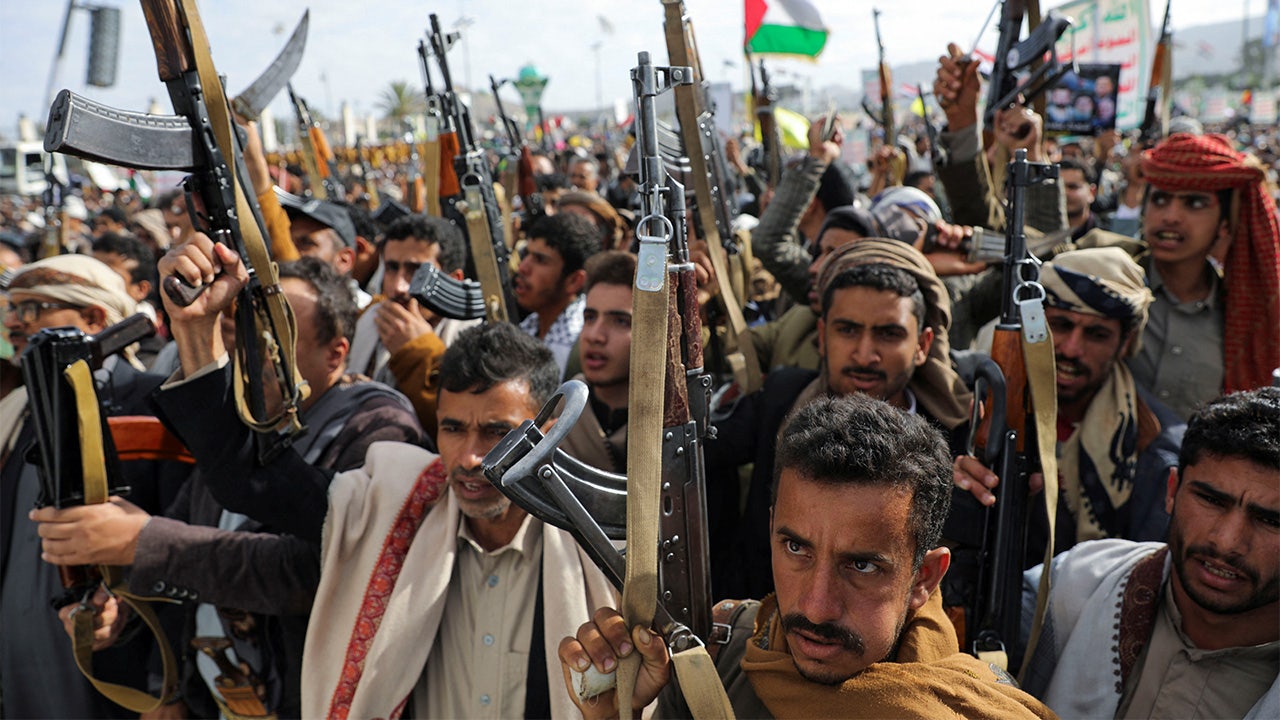Namibia plans to cull 723 wild animals, including 83 elephants, and to distribute the meat to people struggling to feed themselves because of a severe drought across southern Africa, the environment ministry said.
The cull will take place in parks and communal areas where authorities believe animal numbers exceed available grazing land and water supplies, it said in a statement issued on Monday.
NAMIBIA ENDANGERED RHINO POACHING NEARLY DOUBLED IN 2022
Southern Africa is facing its worst drought in decades, with Namibia having exhausted 84% of its food reserves last month, according to the United Nations. Nearly half of Namibia’s population is expected to experience high levels of food insecurity in the coming months.
With such a severe drought, human-wildlife conflicts are expected to increase if the authorities do not intervene, the environment ministry said.
Elephants roam the Chobe river which borders Botswana and Namibia in Kasane, on July 19, 2022. (ZINYANGE AUNTONY/AFP via Getty Images)
“To this effect, 83 elephants from identified conflict areas will be culled, (and) meat will be allocated to the drought relief programme,” it said.
The country also plans to cull 30 hippos and 60 buffalo, as well as 50 impala, 100 blue wildebeest, 300 zebra and 100 eland.
One hundred and fifty-seven animals have already been hunted by professional hunters and companies contracted by the government, yielding more than 56,800 kilograms of meat.
“This exercise in necessary and is in line with our constitutional mandate where our natural resources are used for the benefit of Namibian citizens,” the environment ministry said.
CLICK HERE TO GET THE FOX NEWS APP
More than 200,000 elephants are estimated to live in a conservation area spread over five southern African countries – Zimbabwe, Zambia, Botswana, Angola and Namibia – making the region home to one of the largest elephant populations worldwide.
Hundreds of elephants died in Botswana and Zimbabwe last year because of drought.





